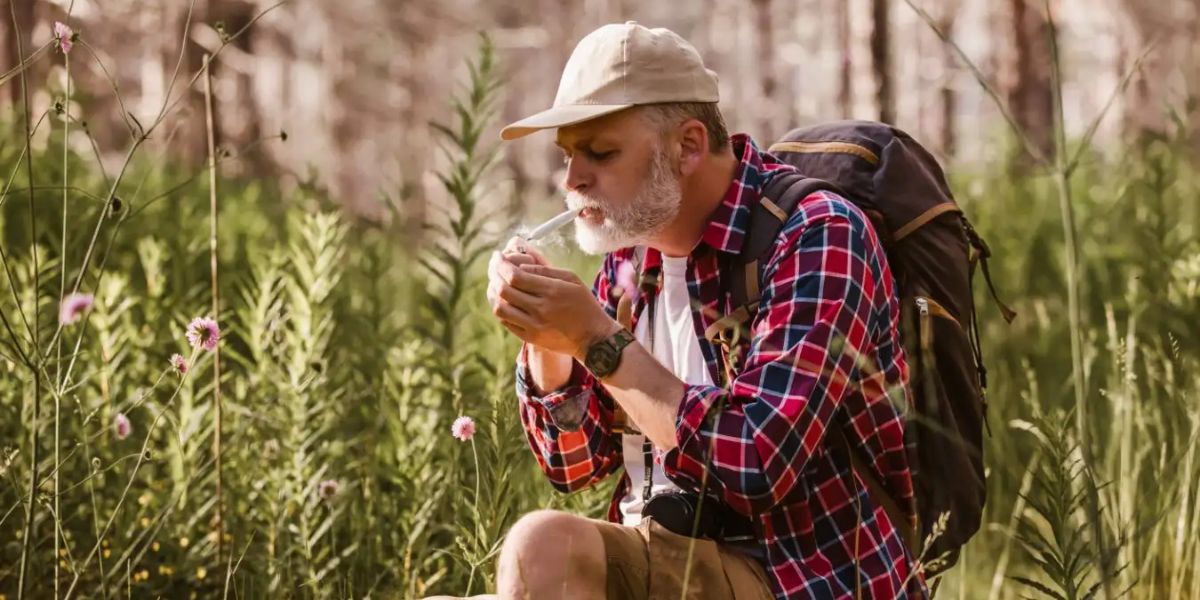Older Adults’ Cannabis Use on the Upswing, UI Study Confirms
Duveen Robinson, a 90-year-old Iowa City resident, went out on a walk a few years ago when she stepped in a pothole and fell badly. Robison had chipped off an inch-long chunk of her kneecap and struggled to walk. Later that day, she applied a topical CBD and THC ointment, which she claimed helped her restore movement overnight.
“It helped me tremendously,” Robinson stated. “It was a blessing that I was able to move so fast following. If you have osteoarthritis, as many senior individuals do, I would recommend using the ointment and CBD drops to supplement it, depending on how severe it is.”
Robison, a career registered nurse, stated that she has always believed in medicine, but her experiences have radically changed her perspective on typical medical practices.
“I became a little dubious about Western medicine as I went along,” Robinson told me. “I’m disillusioned in the care of chronic diseases such as arthritis.” Researchers at the University of Iowa recently discovered that this is true for many elderly folks across the country.
Research published in February 2024 by UI College of Public Health professor Brian Kaskie examined cannabis use in adults aged 50 and above and discovered that one in every six middle-aged people in the United States uses cannabis for therapeutic purposes. The survey also indicated that four out of five participants had a positive opinion regarding the medicine.
Kaskie stated that many older persons suffer from ailments such as cancer or glaucoma and use cannabis to reduce discomfort. He also discovered that some people used cannabis as an alternative to opioids.
“A lot of older persons are using cannabis now when they would have never thought about using cannabis because [they] grew up in a time when cannabis was illegal, and so for these folks to think about using cannabis was a big adjustment,” said Kaskie. Currently, only medical cannabis products are legal in Iowa. However, many liquor stores and smoke shops are now selling hemp-derived THC beverages and Delta-9 goods.
Kaskie said that after trying this alternate medicine route, many people discover cannabis isn’t just a party drug and can truly help them manage their pain. This cannabis-friendly mindset is spreading across the country, with 38 states legalizing the drug for recreational or medical use.
Beyond pain relief, Kaskie investigated the advantages of smoking cannabis at the end of a person’s life. He stated that when elderly persons are in hospice and in severe pain, they are often on so many opioids that they are unable to communicate with their relatives or loved ones before passing away.
“If we offer them cannabis as an alternative, it manages all those symptoms they experience, but it also allows them to be with their family,” said Kaskie. “They’re still with it mentally and can still be with them, and that’s pretty important.” When it comes to the types of cannabis older folks consume, Kaskie says people’s choices for joints, edibles, or topical creams are similar to a coffee drinker’s taste for a light or dark roast.
Despite the numerous benefits for older people, Billy Anthony, partnerships manager at Leafwell Medical Cannabis, a business that assists people in obtaining online medical marijuana cards, stated that about 400 of the about 75,000 adults aged 50 and above who have enrolled are from Iowa.
“As it becomes more ubiquitous and something that people are familiar with, that social stigma certainly started to decrease,” he added. “In my opinion, there does seem to be a kind of snowballing effect in terms of the acceptance.”
Kaskie predicted that as more people experience the benefits of cannabis, Iowa lawmakers will become more amenable to it.
“I would think as more and more people become familiar with it, the leadership of Iowa will be coming around to the idea that maybe we should open this up a little bit,” he went on to say. “As more knowledge and studies show that this is not a harmful chemical, people are more likely to accept it. And if it boosts state revenue, they’ll take it more seriously.
Robinson added that using medical marijuana had opened her mind to new medical therapies, despite her strong disagreement with current health experts’ attitudes about the drug. “I think the supplements enhance anything the pharmaceuticals utilize, but they’re not promoted,” Robinson went on to say.











